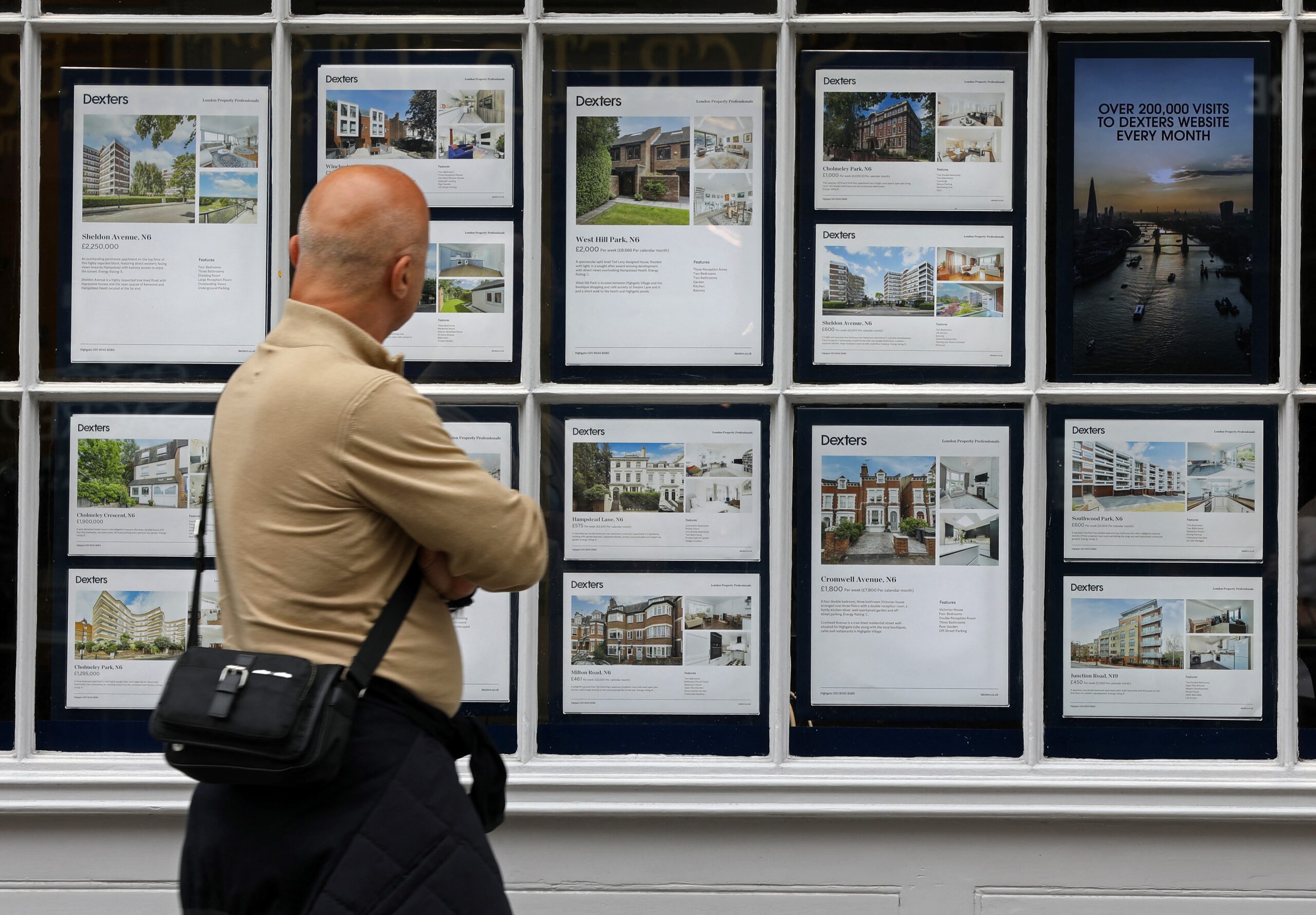Have house prices bottomed? That’s the conclusion of an analysis published yesterday by the Financial Times. After surveying the 37 developed countries of the OECD, it concluded that, on average, house prices have stopped falling and, with central banks poised to start cutting interest rates soon, they’ll resume rising this year.
Admittedly, given the range of countries surveyed, there’s considerable variation. Prices are still falling in some markets, such as Germany; in others, such as the United States, they never really fell. On balance, though, the residential property market looks to have held up pretty well through the rise in interest rates, and is certainly looking healthier than the commercial sector. The sharp falls in house prices that were expected after central banks drove up mortgage rates never really happened. Real estate analysts are thus predicting that happy days will soon be here again.
Still, one might want to hold off uncorking the champagne a bit longer. Nominal falls in house prices may have ended up being pretty modest. But once increased inflation over the last three years has been factored in, with cumulative price increases well into double digits, real declines look more impressive. As for the future trend, the widespread expectation that interest rates will be coming down by much this year could yet be misplaced. In the United States in particular, inflationary pressures are now building in the economy, and we may well see an uptick in consumer prices later this year.
On top of that, the huge run-up in borrowing during the pandemic, along with the Biden administration’s ambitious industrial programme, has created a mountain of government debt. In consequence, a huge amount of bond issuance is expected to hit the market later this year, and it’s not clear how easily it will be absorbed by investors. Reflecting this prospect, bond markets have been slumping recently, pushing up interest rates even amid talk of imminent easing. And if interest rates in the US fail to come down quite as expected, it will become more difficult for other central banks to plunge headlong into easing cycles.
Of course, interest rates aren’t the only thing which determine house prices. Supply constraints in many markets, such as planning regulations which limit new housebuilding, are helping to prop them up. Meanwhile some governments are using fiscal policy to support prices. In Britain, for instance, where the housing market is considered both economically and politically too big to fail, the upcoming Budget is expected to contain some demand-stimulus measures which will aim to bring new buyers onto the market.
Nevertheless, if inflation and interest rates prove more stubborn than the current spring optimism assumes, rebounds in house prices may not be so impressive. Even the current uptick in nominal house prices is still largely cancelled out by inflation. That may in fact be a sign of things to come — an end to falling prices, albeit followed by a long stagnation in some markets. Instead of a bubble bursting, we may see a long, steady deflation.
Over time, therefore, it may be that the property market begins to favour buyers over sellers. That seems even more likely where real wage gains remain positive, as they largely are now, because prospective homebuyers who see housing affordability steadily improving may realise the advantages there are to delaying purchases rather than rushing onto the property ladder. If so, it would amount to a regime change in what has been one of the economy’s most reliable money-making segments.











Join the discussion
Join like minded readers that support our journalism by becoming a paid subscriber
To join the discussion in the comments, become a paid subscriber.
Join like minded readers that support our journalism, read unlimited articles and enjoy other subscriber-only benefits.
Subscribe